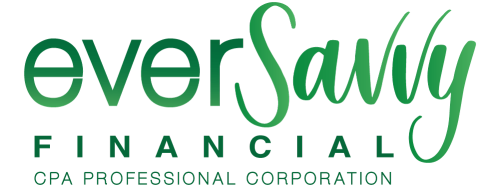You are putting your plan into action. Countless hours of thought and preparation have been put into the development of your product or service that you are hoping turns into the next Google or Facebook and you are ready to take it to market. You are aware that there are many intricacies in starting a business, but the initial questions arise: What will I name my business? What should my logo look like? How can I market my business strategically?
While the above items are important, an often-overlooked component when starting a business is creating a budget. Budgeting is key to financial success. A budget allows a business owner to determine sources and uses of cash. This helps determine how much money is required for startup costs on the business (securing a location, equipment, initial inventory, etc.) and the ongoing source or working capital. The budget will also help prioritize objectives, determining which costs are necessary to launch the business and which can wait until the business takes hold and starts to grow.

Prior to starting your budget, you must research all costs involved to fully understand the financial magnitude of the undertaking and ensure you are not caught off guard by unexpected expenses or overruns. A recommendation is to build in a 10-15% buffer in your funding source for unexpected cost overruns. Also, consider speaking with industry professionals to get more insight.
The main components to consider when budgeting include:
- Startup Costs
- Operational Costs
- Projected Revenues
- Tax Expense

Startup Costs
Startup costs are the expenses incurred before the
commencement of business. Common examples include initial inventory/raw materials, equipment, branding/marketing costs, legal fees, etc.
Underestimating startup costs can be detrimental to the success of your business and thorough research is the best way to understand the costs involved.
Operating Costs
Operating costs are those incurred in carrying out day-to-day activities of the business and include rent, personnel, insurance,
accounting fees, office supplies, web hosting and maintenance, etc. These costs should be annualized in your budget, and then broken out monthly.
By evaluating these expenses annually, it may become evident that some may not be practical. So before signing up for that monthly lease of $3,000 (which adds up to $36k annually), you may look to defer it to a later time and instead consider a more cost-effective short-term work space solution (i.e. co-working spaces or a home office).
Projected Revenues
This may be difficult to estimate when you are first starting out; however, this part is crucial when creating a budget.
It is critical to determine how much your product/service is worth and estimate how many you can sell per day/week/month. If your business is seasonal, this needs to be factored in. A realistic goal to work towards is necessary (while generating $1 million in year 1 seems nice, it may not be realistic). These projections need to be based upon the capabilities of the business. For a conservative estimate, take the projected revenue figure and sensitize it to 75% or 50% and see how your budget would look if your sales
start slower than anticipated. Remember it is always best to have a pleasant surprise by underestimating, rather than overestimating revenues.
Once you have determined your revenues, start-up costs and operating expenses, you can calculate business profit (revenue – expenses = profit). If your revenue exceeds your expenses, you will turn a profit. If expenses exceed revenue, you will be in a net loss. Do not be discouraged if year 1 shows a loss as start-up costs are typically one-time costs.
Tax Expense
When your business does become profitable, you will likely have to pay tax. While not all expenses are deductible for tax purposes, you can reasonably estimate your tax amount based on your business profit. You can work with an accountant to determine a reasonable rate of tax to apply.
Once taxes are applied, you will be able to see your net income after tax. Is this what you were hoping for? If not, this is the chance
to re-evaluate some of your expenses and your pricing.

Remember that failure to plan is planning to fail. The above provides a glimpse into business budgeting. Make sure you go into business with all aspects accounted for and that includes the financial components. The best and brightest ideas can fail if they cannot get off the ground financially. A budget will not only help you initially, but should be reviewed and adjusted at
least annually as your business grows and adapts to any changes you may encounter.
Best of luck!
~ Anastasia


Recent Comments